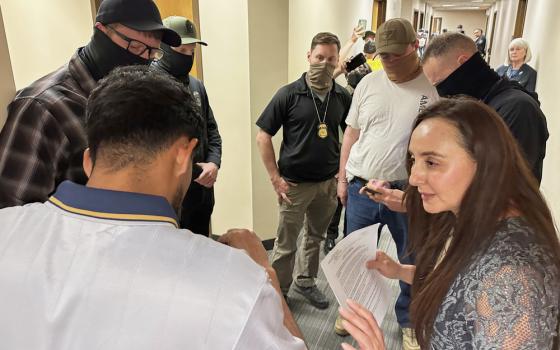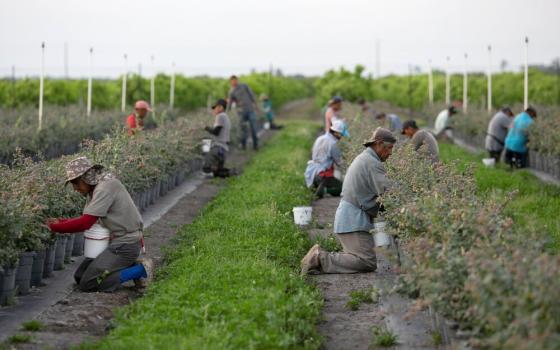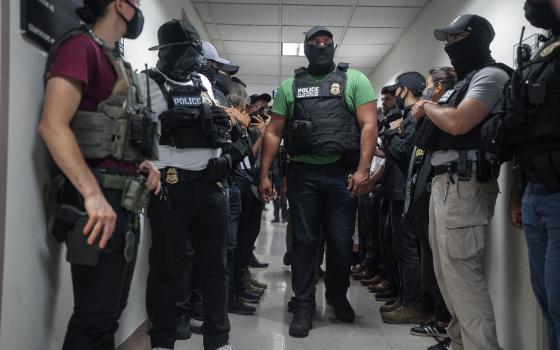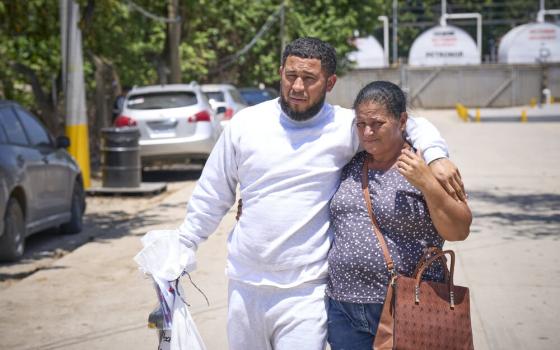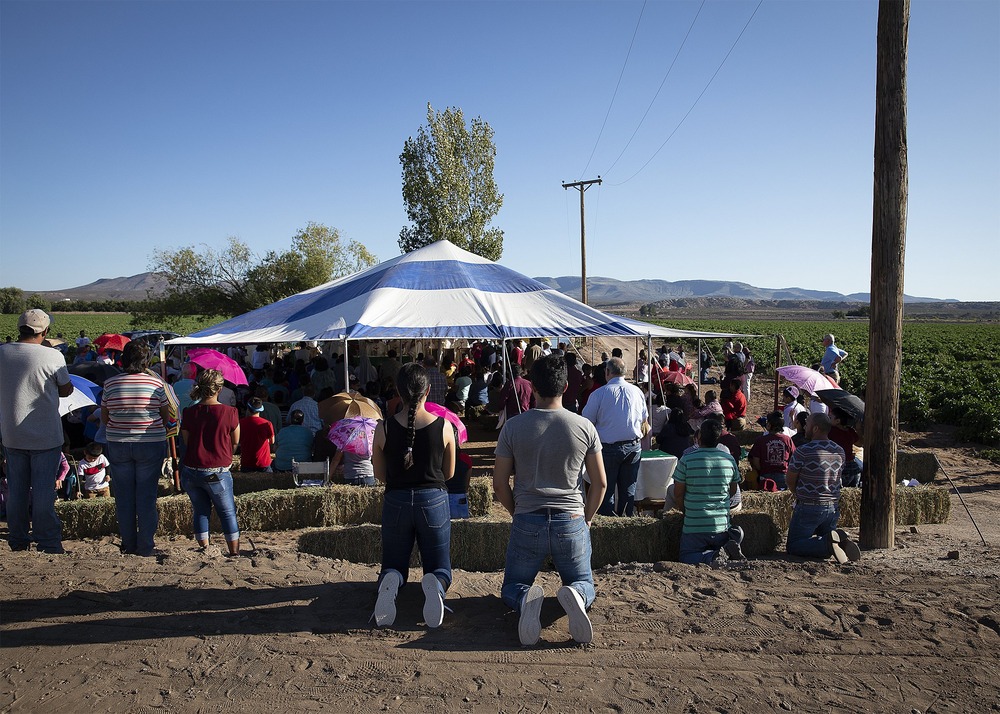
Migrant farmworkers attend an outdoor Mass Sept. 26, 2019, in Hatch, N.M., during a pastoral encounter by U.S. bishops with migrants at the border. President-elect Donald Trump plans to rescind a long-standing policy preventing Immigration and Customs Enforcement agents from making arrests at what are seen as sensitive locations, including houses of worship, schools and hospitals, according to a report by NBC News. (OSV News/Tyler Orsburn)
The incoming administration of President-elect Donald Trump plans to rescind a long-standing policy preventing Immigration and Customs Enforcement agents from making arrests at what are seen as sensitive locations, including houses of worship, schools and hospitals, according to a report by NBC News.
Trump, who has pledged to carry out "the largest deportation program in American history," plans to scrap the longstanding ICE policy — which prohibits immigration enforcement arrests at such locations, as well as other sensitive events like weddings and funerals without approval from supervisors — as soon as the first day he is in office, according to the report's sources.
The Trump-Vance transition team did not immediately respond to a request for comment from OSV News about the report.
Hardline immigration policies, including his call for mass deportations, were a core tenet of the platform Trump campaigned on. Since his election, Trump has also indicated his willingness to involve the military to carry out a mass deportation program.
While Trump has not yet offered specifics on how he would carry out such a program, mass deportations more broadly run contrary to the Second Vatican Council's teaching in "Gaudium et Spes" condemning "deportation" among other actions, such as abortion, that "poison human society" and are "supreme dishonor to the Creator," a teaching St. John Paul II affirmed in two encyclicals on moral truth and life issues.
Catholic immigration advocates raised alarm at the proposal.
"It is clear that local parishes and pastors will need to be prepared for enforcement activity both near and on church property, and should at least require that ICE agents have a warrant before entering a church," J. Kevin Appleby, senior fellow for policy at The Center for Migration Studies of New York and the former director of migration policy for the U.S. Conference of Catholic Bishops, told OSV News.
"This certainly is an infringement on religious freedom and will deter immigrant families from attending Mass and receiving the sacraments," Appleby said. "The U.S. bishops should be very concerned about this deportation scheme and push back against it strongly, as it is as much an attack on the life of the church in this country as it is against immigrant families."
Advertisement
Dylan Corbett, executive director of Hope Border Institute, said the policy change would be a "dramatic threat to the wellbeing of our parishioners, the students in our Catholic educational institutions, and our neighbors."
"They are a direct attack on people during the most important and vulnerable moments of their lives — worshiping God, educating their children and seeking medical care," he said. "The next several months will be a moral moment for the Catholic Church and an opportunity to put our faith into practice. We will have to work more urgently than ever to build a society where no one is pushed into the shadows of isolation, where we all have a common stake in building a stronger future for our children, and we can all be neighbors to one another."
Anna Gallagher, executive director of the Catholic Legal Immigration Network, also known as CLINIC, said the group "is deeply concerned about any changes that would undermine the safety and well-being of immigrants and their families. Sensitive locations — such as houses of worship, schools, and hospitals — are sanctuaries where individuals seek solace, education, and critical care without fear of intimidation or detention."
"This policy has long recognized the importance of these spaces for fostering trust and community stability," Gallagher said. "Rescinding it would not only disrupt families and communities but could also deter individuals from accessing essential services, such as education and healthcare, or practicing their faith freely."
Gallagher noted Pope Francis has consistently emphasized the inherent dignity of each and every human person.
"CLINIC upholds this message of inherent human dignity and urges leaders to consider the profound consequences of such a decision," Gallagher said. "We call for the preservation of protections at sensitive locations to ensure immigrants and their families can live without fear and fulfill their basic needs, including the practice of religion."
Chieko Noguchi, a spokesperson for the U.S. Conference of Catholic Bishops, said the U.S. bishops "remain committed both to following the law and assisting in humane solutions to the challenges in our immigration system."
"We are aware of the various proposals being discussed with regards to immigration, and are preparing to deal with a range of policies, and will engage appropriately when public policies are put forth by the office holders," she said.



